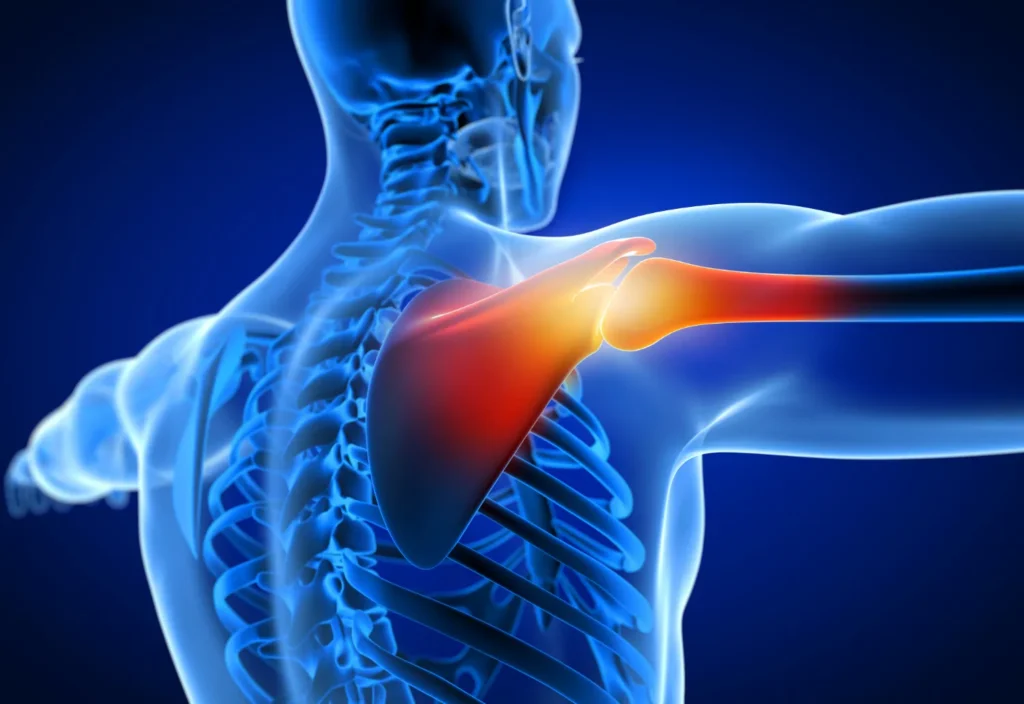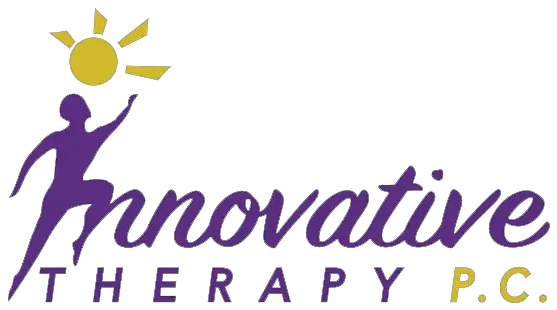Shoulder Replacement Dallas

Shoulder Replacement Physical Therapy Dallas, TX
At Innovative Therapy PC, we specialize in providing comprehensive shoulder replacement physical therapy services in Dallas, Texas. Our team of skilled and experienced therapists is dedicated to helping patients recover and regain function following shoulder replacement surgery.
Shoulder replacement, also known as shoulder arthroplasty, is a surgical procedure to replace a damaged or diseased shoulder joint with an artificial implant. While shoulder replacement surgery can significantly improve mobility and reduce pain, post-operative rehabilitation is crucial for ensuring optimal outcomes and restoring function.
Our shoulder replacement physical therapy program is designed to address each patient’s unique needs and promote a safe and effective recovery process. We utilize a combination of manual therapy techniques, therapeutic exercises, and modalities to improve range of motion, strength, and stability in the shoulder joint.
Our experienced therapists work closely with patients to develop personalized treatment plans tailored to their goals and limitations. Whether you’re recovering from a total shoulder replacement, partial shoulder replacement, or reverse shoulder replacement, we’re here to support you every step of the way.
Through individualized care and compassionate support, we strive to help our patients achieve their maximum potential and return to their daily activities confidently and independently. If you’re seeking shoulder replacement physical therapy in Dallas, Texas, trust the experts at Innovative Therapy PC to provide exceptional care and results.
Shoulder Joint Replacement Dallas, TX
Innovative Therapy PC offers specialized physical therapy services for shoulder joint replacement patients in Dallas, Texas. Shoulder joint replacement, or shoulder arthroplasty, is a surgical procedure to replace a damaged or degenerated shoulder joint with an artificial implant.
Following shoulder joint replacement surgery, rehabilitation plays a crucial role in restoring function and mobility to the shoulder. Our team of skilled therapists is dedicated to providing comprehensive and individualized care to help patients achieve optimal outcomes and regain independence.
Our shoulder joint replacement physical therapy program focuses on improving the range of motion, strength, and function of the shoulder joint through a combination of manual therapy techniques, therapeutic exercises, and modalities. We work closely with patients to develop personalized treatment plans tailored to their needs and goals.
Whether you’re recovering from a total shoulder replacement, partial shoulder replacement, or reverse shoulder replacement, our experienced therapists are here to support you every step. We understand the challenges associated with shoulder joint replacement surgery. We are committed to providing compassionate care and guidance throughout the rehabilitation process.
If you’re seeking shoulder joint replacement physical therapy in Dallas, Texas, trust the experts at Innovative Therapy PC to help you achieve a successful recovery and return to the activities you love.

Physical Therapy for Shoulder Injuries Dallas, TX
Innovative Therapy PC offers specialized physical therapy services for shoulder injuries in Dallas, Texas. Our team of experienced therapists is dedicated to helping patients recover from shoulder injuries and regain function, strength, and mobility in the shoulder joint.
Shoulder injuries can occur as a result of trauma, overuse, or degenerative conditions, leading to pain, stiffness, and limitations in movement. Whether you’re experiencing shoulder impingement, rotator cuff tears, shoulder instability, or other shoulder-related issues, our therapists are here to provide personalized care and support.
Our shoulder injury physical therapy program focuses on reducing pain and inflammation, improving range of motion, and restoring strength and function in the shoulder. We utilize various techniques, including manual therapy, therapeutic exercises, modalities, and patient education, to address the underlying causes of shoulder pain and dysfunction.
Through comprehensive evaluation and individualized treatment plans, we strive to help our patients achieve long-term relief and prevent future injuries. Our goal is to empower patients to actively recover and return to their daily activities with confidence and independence.
If you’re seeking physical therapy for shoulder injuries in Dallas, Texas, trust the experts at Innovative Therapy PC to provide exceptional care and results. Contact us today to schedule an appointment and take the first step toward a pain-free and functional shoulder.
Meet with the best total Shoulder Replacement physical therapists in Dallas, Texas.

At Innovative Therapy PC, we are proud to offer the expertise of our highly skilled and experienced total shoulder replacement physical therapists in Dallas, Texas. Our team is committed to providing exceptional care and support to patients undergoing total shoulder replacement surgery, helping them achieve optimal outcomes and regain function in their shoulder joints.
Total shoulder replacement, or total shoulder arthroplasty, is a surgical procedure to replace a damaged or degenerated shoulder joint with an artificial implant. Post-operative rehabilitation is essential for successful recovery and restoring shoulder mobility, strength, and function.
Our total shoulder replacement physical therapy program is designed to address each patient’s unique needs and promote a safe and effective recovery process. We utilize a combination of manual therapy techniques, therapeutic exercises, and modalities to improve range of motion, strength, and stability in the shoulder joint.
Our experienced therapists work closely with patients to develop personalized treatment plans tailored to their goals and limitations. Whether you’re recovering from total shoulder replacement surgery due to arthritis, fracture, or other conditions, we’re here to provide compassionate care and guidance throughout your rehabilitation journey.
If you’re seeking the best total shoulder replacement physical therapists in Dallas, Texas, look no further than Innovative Therapy PC. Contact us today to schedule an appointment and experience the difference between expert care and personalized attention.
Client Success Stories from Dallas
FAQs About Shoulder Replacement Dallas, TX
How long do you need physical therapy after shoulder replacement surgery?
The duration of physical therapy after shoulder replacement surgery varies depending on individual factors such as the patient’s overall health, the surgery’s extent, and any complications. Generally, patients can expect physical therapy for approximately 6 to 12 weeks following shoulder replacement surgery. During this time, physical therapy aims to improve the range of motion, strength, and function in the shoulder joint, gradually transitioning patients back to their daily activities. However, it’s essential to follow the guidance of your orthopedic surgeon and physical therapist to ensure a safe and successful recovery.
What can you never do after shoulder replacement?
While shoulder replacement surgery can significantly improve mobility and reduce pain, patients should avoid certain activities and movements to protect their new shoulder joint and prevent complications. Some activities to avoid after shoulder replacement surgery include:
- Lifting heavy objects: Straining or lifting heavy objects can put excessive stress on the shoulder joint and increase the risk of implant loosening or dislocation.
- Participating in high-impact sports: High-impact activities such as contact sports or repetitive overhead movements should be avoided to prevent damage to the shoulder joint.
- Sleeping on the operated side: Sleeping on the operated shoulder can place undue pressure on the joint and impede healing.
- Extreme ranges of motion: Avoiding extreme ranges of motion or sudden movements that could strain or damage the shoulder joint is essential for protecting the integrity of the implant.
Following your surgeon’s recommendations and adhering to any post-operative precautions can help ensure a successful recovery and long-term shoulder joint function.
What is the downside of a shoulder replacement?
While shoulder replacement surgery can provide significant pain relief and improve function for patients with severe shoulder arthritis or injury, there are potential downsides and risks associated with the procedure. Some possible downsides of shoulder replacement surgery include:
- Infection: As with any surgical procedure, there is a risk of infection following shoulder replacement surgery. Infections can occur at the surgical site or within the joint, requiring antibiotics or additional treatment.
- Implant wear and loosening: Over time, the artificial components of the shoulder joint may wear out or become loose, necessitating revision surgery.
- Limited range of motion: Some patients may experience limitations in shoulder movement following shoulder replacement surgery, particularly in certain positions or activities.
- Nerve injury: There is a risk of nerve injury during shoulder replacement surgery, which can result in numbness, weakness, or pain in the shoulder or arm.
Patients must discuss shoulder replacement surgery’s potential risks and benefits with their orthopedic surgeon and carefully weigh their options before proceeding.
What are the permanent restrictions after shoulder replacement?
While shoulder replacement surgery can significantly improve mobility and function in the shoulder joint, there may be some permanent restrictions or limitations following the procedure. Some common permanent restrictions after shoulder replacement surgery may include:
- Avoiding heavy lifting: Patients may be advised to avoid lifting heavy objects or participating in activities that require excessive strain on the shoulder joint to prevent damage or dislocation of the implant.
- Limiting overhead activities: Certain overhead activities or movements may be restricted to prevent excessive stress on the shoulder joint and reduce the risk of implant wear or loosening.
- Avoiding high-impact sports: High-impact activities such as contact sports or activities that involve repetitive overhead movements may be off-limits to protect the integrity of the implant and prevent injury.
- Following proper rehabilitation protocols: Adhering to post-operative rehabilitation protocols and exercises prescribed by your physical therapist is essential for maintaining strength, flexibility, and function in the shoulder joint and minimizing the risk of complications.
Patients must discuss any permanent restrictions or limitations with their orthopedic surgeon and physical therapist and follow their guidance to ensure a safe and successful recovery.
What is the hardest orthopedic surgery to recover from?
While the difficulty of recovery from orthopedic surgery can vary depending on individual factors, such as the type and extent of the procedure, some orthopedic surgeries are generally considered more challenging to recover from than others. Total shoulder replacement surgery is often cited as one of the hardest orthopedic surgeries to recover from due to several factors:
- Complex anatomy: The shoulder joint is highly complex, with multiple muscles, tendons, and ligaments surrounding the joint, making it challenging to restore normal function and range of motion.
- Prolonged rehabilitation: Recovery from shoulder replacement surgery typically involves a lengthy rehabilitation process, including physical therapy and exercises to restore strength, mobility, and function in the shoulder joint.
- Potential complications: Shoulder replacement surgery carries a risk of complications such as infection, implant loosening, and nerve injury, which can prolong recovery and require additional treatment.
- Limited mobility: Following shoulder replacement surgery, patients may experience temporary limitations in shoulder movement and function, requiring daily activities and lifestyle adjustments.
Despite the challenges associated with recovery from shoulder replacement surgery, many patients experience significant pain relief and improved function in the shoulder joint, allowing them to return to their daily activities with greater comfort and mobility.
Can you do bicep curls after shoulder replacement?
The ability to perform bicep curls after shoulder replacement surgery depends on several factors, including the type of shoulder replacement surgery performed, the patient’s overall health, and the guidance of their orthopedic surgeon and physical therapist. In some cases, patients may be able to perform bicep curls as part of their post-operative rehabilitation program to improve strength and function in the shoulder joint.
However, it’s essential to follow any specific instructions or restrictions your healthcare team provides to ensure a safe and successful recovery. Attempting to perform bicep curls too soon or without proper guidance can put undue stress on the shoulder joint and increase the risk of complications or implant damage.
Before starting any exercise program, including bicep curls, following shoulder replacement surgery, it’s crucial to consult with your orthopedic surgeon and physical therapist to determine the appropriate timing and technique for exercises based on your individual needs and limitations. With proper guidance and rehabilitation, many patients can gradually regain strength and function in the shoulder joint and safely return to their desired activities.
What is shoulder replacement surgery, and when is it needed?
Shoulder replacement surgery involves replacing the damaged parts of the shoulder joint with artificial implants to relieve shoulder pain and restore function. It is typically needed for severe arthritis, rotator cuff injuries, or when other treatments have failed.
What is a reverse shoulder replacement, and how does it differ from a traditional shoulder replacement?
A reverse shoulder replacement is a type of shoulder surgery where the normal ball-and-socket structure is reversed. This procedure is particularly beneficial for patients with severe rotator cuff injuries as it relies on different muscles to move the arm, unlike traditional shoulder replacement.
What is rotator cuff repair, and how does it relate to shoulder replacement?
Rotator cuff repair is a surgical procedure to fix tears in the rotator cuff tendons. If the rotator cuff is severely damaged and cannot be repaired, shoulder replacement, including reverse shoulder replacement, might be recommended to alleviate pain and restore function.
Who are the best candidates for shoulder replacement surgery in Dallas?
The best candidates for shoulder replacement surgery are individuals with severe shoulder pain, loss of function, and damage to the shoulder joint that has not improved with conservative treatments. Consulting with an orthopaedic shoulder surgeon will determine the suitability for surgery.
How do I choose the right shoulder surgeon for my procedure in Dallas?
To choose the right shoulder surgeon, look for an experienced orthopaedic shoulder specialist with a track record of successful shoulder surgeries, including rotator cuff repair and shoulder replacements. Patient reviews and surgeon credentials are also important factors.
What should I expect during the recovery period after shoulder replacement surgery?
Recovery after shoulder replacement surgery involves physical therapy to regain strength and mobility. Most patients experience significant pain relief and improved function, but full recovery can take several months. Your shoulder surgeon will provide a detailed rehabilitation plan.
What are the risks and benefits of shoulder replacement surgery?
The benefits of shoulder replacement surgery include significant pain relief, improved range of motion, and better overall function. However, as with any surgery, there are risks such as infection, implant loosening, and complications related to anesthesia. Discuss these with your orthopaedic shoulder surgeon.
Can rotator cuff repair be done at the same time as shoulder replacement?
In some cases, rotator cuff repair can be performed alongside shoulder replacement if the damage is not too extensive. However, if the rotator cuff is too damaged, a reverse shoulder replacement might be a better option. Your shoulder surgeon will evaluate your specific condition to decide the best approach.
How long does shoulder replacement surgery take, and what is the typical hospital stay?
Shoulder replacement surgery typically takes about 2-3 hours. Most patients stay in the hospital for 1-2 days post-surgery for monitoring and initial recovery. Your shoulder surgeon will provide specific details based on your individual case.
